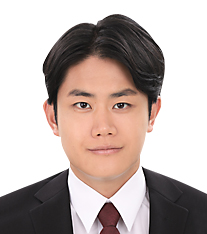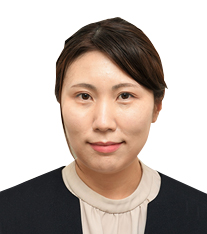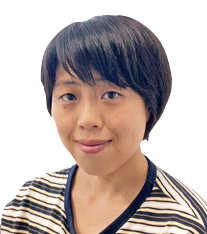- JST Home
- /
- Strategic Basic Research Programs
- /
 PRESTO
PRESTO- /
- project/
- Creating Human-Centered Interaction to Solve Social Issues/
- [Human-Centered Interaction] Year Started : 2024
[Human-Centered Interaction] Year Started : 2024
Eriko Ankyu
Designing a Learning Process for Drone Operation by Elderly Farmers
Grant No.:JPMJPR24I1
Researcher
Eriko Ankyu

Assistant professor
Institute of Life and Environmental Sciences
University of Tsukuba
Outline
While the population of Japanese farmers is aging, smart agriculture that utilizes advanced technologies, such as drones, is being promoted. For smooth learning of these new technologies, it is necessary to provide support that takes user characteristics into account. This research aims to clarify what kind of physical and cognitive burdens and difficulties occur when elderly people learn to operate drones, both from laboratory and field experiments, and to design a learning process that considers the physical and cognitive characteristics of elderly people.
Yuya Ieiri
Elucidating Dynamics of Fostering Social Capital
Grant No.:JPMJPR24I2
Researcher
Yuya Ieiri

Assistant Professor
Graduate School of Information, Production and Systems
Waseda University
Outline
The connections between people and society are social resources called social capital (SC) that can be used to solve various social issues. However, the method for fostering SC has yet to be developed because the process by which interactions between people and society foster SC is unclear. This study elucidates the dynamics of SC fostering in shoutengai, having the problem of losing connections and functionality.
Mitsuhiko Ishikawa
The Developmental Mechanism of Social Brain Networks from Infancy
Grant No.:JPMJPR24I3
Researcher
Mitsuhiko Ishikawa

Assistant Professor
Hitotsubashi Institute for Advanced Study
Hitotsubashi University
Outline
The aim of this research is to investigate the developmental mechanisms of how the social brain network, which serves as the information processing foundation for human social interactions, is formed. Through a longitudinal study, I will examine how social experiences, particularly through caregiver interactions, influence the development of the social brain in infants. By capturing nonlinear developmental trajectories from neurophysiological data, I aim to promote a society that understands and appreciates neuro-diversity.
Koji Inoue
MaAI: Non-Linguistic Translation using a Multimodal Dialogue Foundation Model
Grant No.:JPMJPR24I4
Researcher
Koji Inoue

Assistant Professor
Graduate School of Informatics
Kyoto University
Outline
This project develops a multilingual multimodal dialogue foundation model (MaAI) to promote mutual understanding in intercultural communication. MaAI translates, transforms, and visualizes non-linguistic behaviors during conversations, such as turn-taking, backchannels, fillers, eye-gaze, and so on, in real-time between different languages and cultures. This project aims to elucidate the functions and effects of non-linguistic behaviors in intercultural communication, thereby creating a new research topic called “non-linguistic translation.”
Naotsugu Kaneko
Elucidating the Role of Interoception in Emotion-Motor Interaction
Grant No.:JPMJPR24I5
Researcher
Naotsugu Kaneko

Assistant Professor
Graduate School of Arts and Sciences
The University of Tokyo
Outline
The aim of this project is to elucidate the neural mechanisms underlying the emotion-motor interaction, with a particular focus on interoceptive sensation. This project investigates how emotions modulate the motor control system and how emotional responses to physical movements change, while considering individual differences and variations in mental and physical states. Additionally, it aims to optimize this interaction through neuromodulation techniques that target interoceptive sensation. The findings from this project are expected to contribute to personalized healthcare and the design of human-centered environments and technologies.
Katie Seaborn
Discovering and Dismantling Dark Patterns in Everyday Interfaces
Grant No.:JPMJPR24I6
Researcher
Katie Seaborn

Associate Professor
School of Engineering
Institute of Science Tokyo
Outline
Dark patterns and deceptive designs (DPs), the tricky and coercive user interface elements found in everyday digital products, are a societal, economic, and ethical challenge. In this research, I aim to untangle the nature of DPs in Japan, discover how are they perceived by professionals and the public, and explore how they can be redressed. To this end, I will carry out exploratory and confirmatory research on the Japanese consumer context. I will develop and evaluate educational and protection platforms: a training system to “inoculate” individuals against DPs and a countermeasures system for real-time protection. The scientific and practical contributions will be a human-centered risk-benefit framework, culturally-sensitive knowledge about DPs, and platforms for enabling a future free of deception.
Takeshi Tanabe
Extension of Healthy Life Expectancy using Haptic Illusions
Grant No.:JPMJPR24I7
Researcher
Takeshi Tanabe

Attached to Research Group
Department of Information Technology and Human Factors
National Institute of Advanced Industrial Science and Technology (AIST)
Outline
This project aims to develop innovative interactive systems utilizing haptic illusions to promote healthy life extension. Specifically, two systems will be designed: one for dementia prevention and another for dementia screening. The prevention system will subconsciously enhance the benefits of walking exercises through haptic illusions, while the screening system will use the characteristics of haptic illusions to identify mild cognitive impairment. Both systems are designed to minimize psychological barriers associated with prevention and screening.
Shohei Dobashi
Creating high-performance using flow state and physiological synchrony
Grant No.:JPMJPR24I8
Researcher
Shohei Dobashi

Specially Appointed Assistant Professor
Institute of Health and Sports Sciences
University of Tsukuba
Outline
In order for people to achieve their goals and realize their well-being, it is important to work (play) together with others in an integrated way while making the most of their own physical and mental functions. In this study, I will challenge to establish objective indicators that can accurately predict flow states based on physiological response and their interpersonal synchronization by examining the relationship between the dynamics of physiological, psychological, and sociological indicators during individual and group brain activity and intellectual performance. And then, I will attempt to create a strategy for creating high performance that targets these indicators.
Aya Toyoshima
Evaluation of the tool for assessing social cognitive biases in online programs
Grant No.:JPMJPR24I9
Researcher
Aya Toyoshima

Lecturer
Graduate School of Human and Social Sciences
Shimane University
Outline
Psychological loneliness distorts our social cognition when evaluating social interactions with others. In this study, firstly, the aim is to improve the assessment tool of social cognitive biases caused by psychological loneliness by applying an experimental task in psychology and collecting data. Secondly, an online learning program on psychological loneliness will be implemented and evaluated using the developed assessment tool. Through these studies, the goal is to implement the assessment tool and the online learning program in society.
Yumi Hamamoto
Breaking free from lookism through the diversification of values
Grant No.:JPMJPR24IA
Researcher
Yumi Hamamoto

Assistant Professor
Frontier Research Institute for Interdisciplinary Sciences
Tohoku University
Outline
Lookism, the overemphasis on appearance, has become a significant issue in modern society, leading to mental health disorders such as eating disorders. In this study, we aim to comprehensively elucidate the mechanisms of self-body perception by using a combination of VR and MRI, investigating how this process is altered by lookism. Additionally, we focus on the characteristics of the metaverse, where appearance does not inherently correlate with self-esteem, and will explore the potential of metaverse interactions to mitigate lookism.
Yuki Ban
Development of a Breathing Regulation Method through Inducing a Sense of Ownership in Biofeedback
Grant No.:JPMJPR24IB
Researcher
Yuki Ban

Project Associate Professor
Graduate School of Frontier Sciences
The University of Tokyo
Outline
This research plan aims to develop a method for improving breathing regulation techniques through inducing a sense of ownership in biofeedback. The approach is as follows: First, stimuli that temporally, spatially, and qualitatively match or resemble actual respiratory activity will be designed. This will be used to construct a method for inducing a sense of ownership in biofeedback. Next, by applying this method, the study will seek to establish an effective breathing regulation technique that can be implemented in daily life. By enhancing awareness of breathing and self-regulation functions, this approach aims to amplify the effects of respiratory guidance. This research proposes a new approach to breathing regulation through biofeedback and is expected to potentially contribute to stress reduction and health promotion.
Keigo Matsumoto
Design and Evaluation of a Collaborative Work Support Method Using Time Modulation Operations
Grant No.:JPMJPR24IC
Researcher
Keigo Matsumoto

Assistant Professor
Institute of Systems and Information Engineering
University of Tsukuba
Outline
The purpose of this research is to provide support to users who have difficulty with perceptual-motor skills and collaborative work due to dysfunction in time perception and evaluation caused by aging or developmental disorders, through an innovative approach called time modulation. To achieve this, we will design a time modulation method that can adjust psychological time for each user while maintaining the consistency of causality and timing among multiple users, and evaluate it.
Masataka Yamamoto
Elucidation of therapist-patient interaction during gait training and support for proposing treatment methods
Grant No.:JPMJPR24ID
Researcher
Masataka Yamamoto

Associate Professor
Faculty of Engineering
Tokyo University of Agriculture and Technology
Outline
This research aims to clarify the motor and psychological changes of both therapists and patients in gait rehabilitation and to explore the effects of therapist-patient interaction during rehabilitation on the improvement of gait function. Furthermore, this research also attempts to propose an effective gait rehabilitation method and to improve the skills of therapists by promoting the therapist-patient interaction based on measurement in manual techniques to guide gait, the patient’s gait condition, and physical functions.













